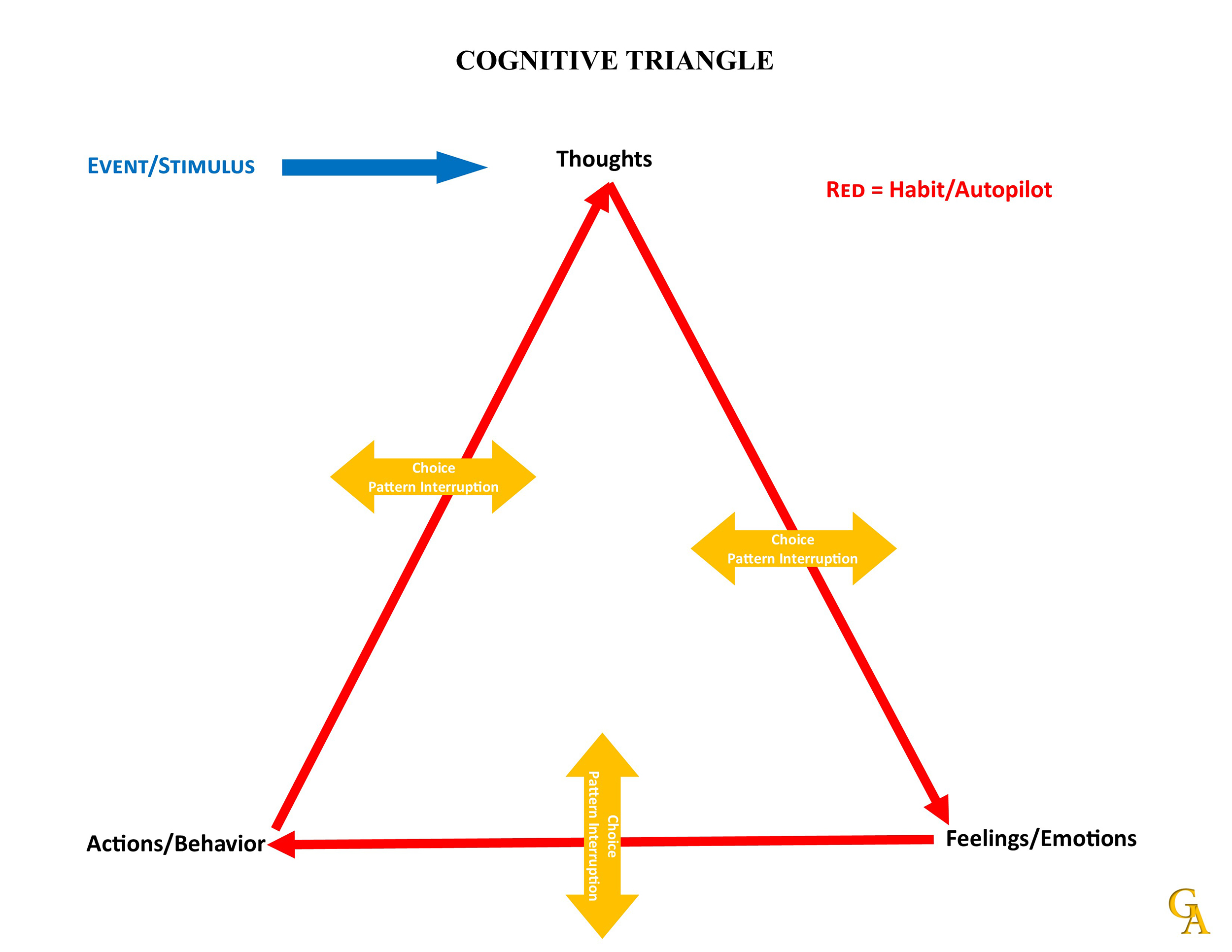Did you know that how you speak to yourself affects your mental and overall health? You’re probably thinking, Yeah, right! Hey, I do understand your skepticism. After all, your internal conversations are just your private thoughts and don’t really effect anything or anyone else. That is incorrect. Your self talk impacts every area of your life.
Self Talk: Repetitive Negativity
So we’re on the same page, self talk involves the thoughts that you repeat to yourself on the regular. Those thoughts can be positive, negative, or neutral. They are, however, typically negative, as we humans have a Negativity Bias. That is, we are 5x more likely to pay attention to things negative than positive. Negativity Bias actively seeks out what’s wrong or gravitates toward adverse events and experiences. Either way, this innate filter is all about the negative and shows up in what you think, in your choices, and ultimately your circumstances.
…we tend to think the same negative things over and over and over.
There is more. According to Cleveland Clinic, we humans process about 70,000 thoughts per day! How many of these thoughts are you actually conscious of? One, five, ten percent? Not much at all. Add to this, 80-90% of the 70K thoughts are negative and repetitive. So we tend to think the same negative things over and over and over.
Most people live unconsciously, meaning they are on autopilot and are not consciously aware of what they are doing, thinking, or feeling at any given moment. That autopilot is made of archived memories. You see, the subconscious stores every single experience you’ve ever had. So when on autopilot, your decisions are made based on your history and not on present-moment awareness. Your internal dialogue is no different.
“…most of our beliefs were unconsciously created based on our
interpretations of painful and pleasurable experiences in our past.”
–Tony Robbins
Negative Self Talk & Mental Health
Wow! That’s deep, I know. So if I have the same negative thoughts every day that I’m not aware of then what can I do about them? I am so glad you asked. You can learn to manage your thoughts and thereby improve your mental and overall health. By the way, your thinking patterns reflect and reinforce your beliefs about yourself and the world.
Negative self talk is pervasive in anxiety and depression, and your body hears everything you think and responds accordingly. One of the core principals of Cognitive Behavioral Therapy involves changing faulty, distorted, and unrealistic thinking to effectively improve mental health and overall functioning in every area of life.

When unconscious and on autopilot, automatic irrational thinking leads to automatic irrational emotions which lead to automatic poor choices, resulting in unwanted outcomes. The reverse is also true. Realistic and rational cognitions promote present moment awareness, appropriate emotion, and choices based on real-time information, which lead to better results. You must be conscious and not on autopilot to be present.
Self Talk To-dos
The 5 steps below will assist you in improving your self talk so you may interpret (think about) events and experiences in a way that supports and empowers you.
1.
Awaken.
Increase your awareness of the dominant thoughts that run through your mind. Adopt an objective posture, as if you’re watching the notions slide by like a film strip.
Observing your thoughts teaches you about you, deepens your connection to self, and allows for honest reflection that promotes healthy change. The key in this process is observation without judging yourself or your thoughts. You are not stupid, lazy, or weak because of the habitual thoughts that live inside your head.
Remember that your mindset (beliefs and thoughts) developed unconsciously. You waking up and becoming conscious gives you the best opportunity to change the beliefs and thoughts that don’t empower you to make healthy changes.
2.
Don’t be fooled.
Thoughts are not facts. So don’t believe everything you think. Thoughts are expressions of your beliefs and tools to help you navigate life effectively. Fact check your automatic thoughts to discern which are distorted and unrealistic and which are realistic and healthy. Then you’ll know which thoughts to give energy to.
3.
Reframe.
Change your thoughts, change your outcomes, change your life. Once aware of your dominant negative thoughts, you can then reframe them. Keep in mind that Negativity Bias and other forms of distorted thinking trigger your emotional responses. Some say that thoughts actually create emotions.
Think of your least favorite person. Did that arouse anger or fear? Did your skin crawl?
Now think of your favorite food. Did you get warm fuzzies? Feel loved? Happy?
Thoughts have that power. Another example is repeat each statement below to yourself, take a beat, then scan your body and mind for how each one impacts you:
Statement 1: What’s wrong with me, things never work out?
Statement 2: I’m sorry this didn’t work out for me, maybe next time.
Hopefully, you felt the difference triggered by each statement and can understand how reframing your negative thoughts changes your emotional experiences.
“When you change the way you look at things, the things you look at change.”
–Wayne Dyer
4.
Be your own best friend.
Surely if your best friend was having a difficult time, you would offer them supportive and encouraging words. Yes? Of course! The language we use when speaking to those we genuinely love goes something like this:
You can manage this. You’re stronger than you think. You’re doing the best you can.
Simply apply this language to yourself and be your own best friend.
5.
Meditate.
Real-time information is the most accurate and only available in the present moment. Benefits of meditation include reduced stress and enhanced sleep. Meditation also promotes mindfulness, present moment awareness. And the more conscious you are of what you’re thinking, feeling, and doing at any given time, the better equipped you’ll be to make the most appropriate choices for yourself.
In addition, meditation can help you increase self-awareness and learn more about your dominant thoughts. There are many sources available that teach meditation, like apps, videos, and classes.
Self talk impacts every area of your life. The effects are positive or negative. Unfortunately, human beings are prone to Negativity Bias and tend to see themselves and the world through that lens. However, you can learn to manage your thoughts and reframe them to increase positives in your life. Use the 5 Self Talk To-dos to enhance your mental, emotional, and overall health.


